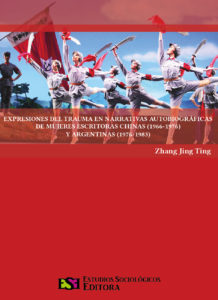
Editors: Scribano, Adrian, Lisdero, Pedro (Eds.)
This volume provides a multidisciplinary perspective on a set of transformations in social practices that modify the meaning of everyday interactions, and especially those that affect the world of labour. The book is composed of two types of texts: some dedicated to exploring the modifications of labour in the context of the ‘digital age’, and others that point out the consequences of this era and those transformations in the current social structuration processes. The authors examine interwoven possibilities and limitations that act in renewed ways to release/repress the creative energy of human beings, just a few of the potential paths for investigating the connections between work and society that are nowadays involved in the battle of sensibilities.
Contents:
– Introduction: Politics of Sensibilities, Society 4.0 and Digital Labour (Scribano, Adrian)
– Digital Gaze and Visual Experience (Scribano, Adrian and Lisdero, Pedro)
– Work and Sensibilities: Commodification and Processes of Expropriation Around Digital Labour (Scribano, Adrian and Lisdero, Pedro)
– Location and Data Visualisation Culture in Chile (Osorio, Francisco)
– Borders and Archives Under the New Conditions of Digital Visuality (Martínez Luna, Sergio)
– The Society 4.0, Internet, Tourism and the War on Terror (Korstanje, Maximiliano E.)
– Labour, Body, and Social Conflict: The “Digital Smile” and Emotional Work in Call Centres (Lisdero, Pedro)
– “Sharing Economy, Sharing Emotions” in the Society 4.0: A Study of the Consumption and Sensibilities in the Digital Era in China (Jingting, Zhang)
– The Invisible Face of Digital Labour in Turkey: Working Conditions, Practices and Expectations (Ayd?n, Mustafa Berkay )
– An Approach to Creative Work in the Global Economy of Risk and Uncertainty (Roche Cárcel, Juan A.)
Más información: https://www.palgrave.com/us/book/9783030123055













